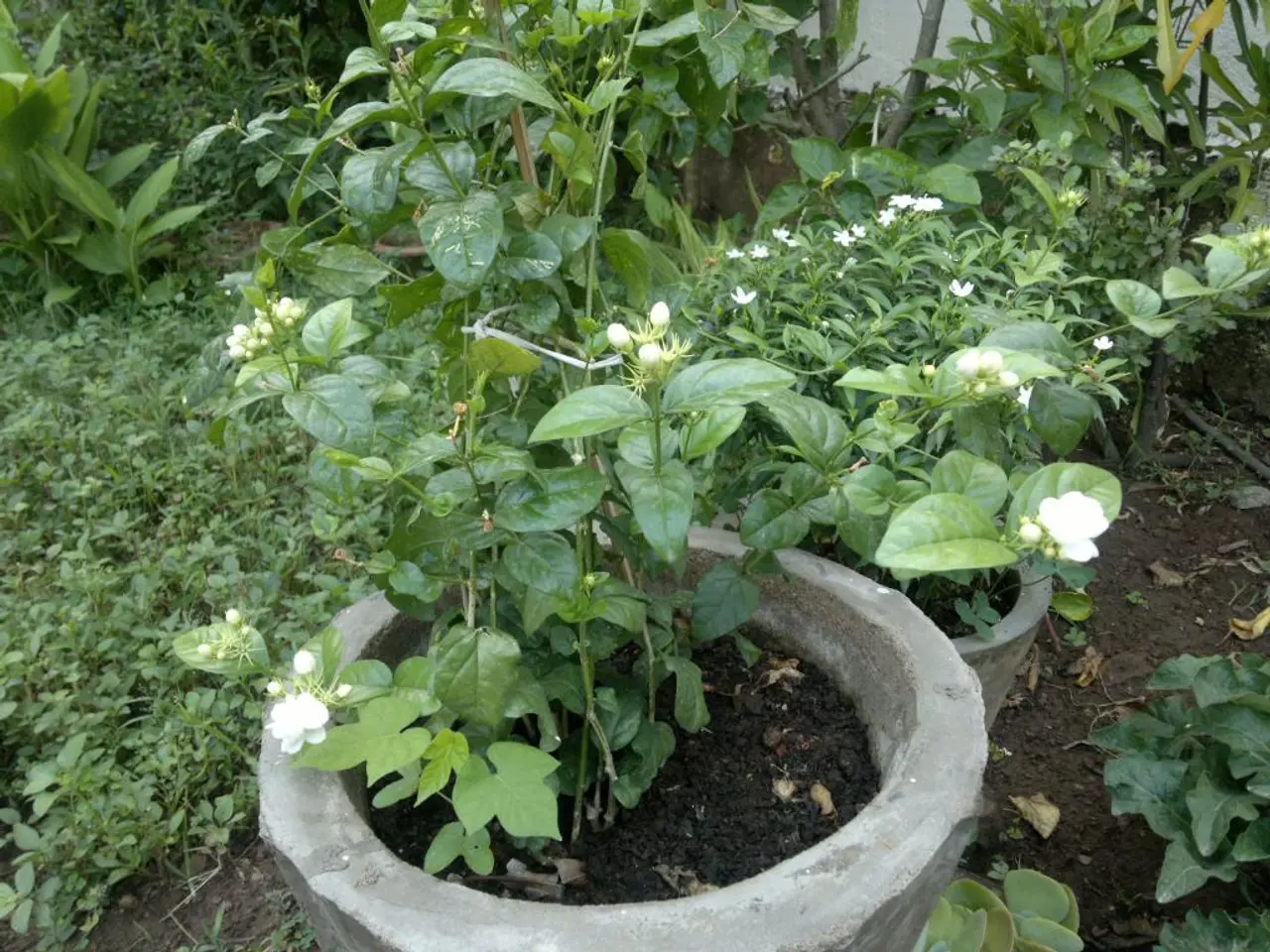All about Potash Fertilizer: A Comprehensive Guide
In the world of agriculture, potash fertilizers have become a valuable asset for farmers and plantation owners alike. These fertilizers, rich in potassium, play a crucial role in enhancing plant growth and overall productivity.
Potash fertilizers contribute significantly to increased crop yields. By providing potassium, a vital nutrient for plants, they support various physiological functions that boost plant growth and productivity [1][2].
One of the key benefits of potash fertilizers is the strengthening of root systems. Potassium aids in root development, enabling plants to absorb water and essential nutrients more effectively [1]. This improved absorption capacity can help plants withstand environmental stresses such as drought, salinity, pests, and temperature extremes [1][2][5].
Moreover, potassium enhances plants' resistance to diseases. By improving their ability to withstand stress, plants become more resilient and less susceptible to diseases [1][2][5].
Potassium also plays a significant role in nutrient uptake efficiency. It helps plants absorb other essential nutrients efficiently, optimizing fertilization use [5]. This efficient nutrient absorption not only improves crop quality but also contributes to a healthier soil ecosystem [3].
Certain forms of potash fertilizers, such as potassium sulfate, can improve soil structure and promote beneficial microbial activity, fostering a healthier soil ecosystem [3].
The versatile application methods of potash fertilizers allow for tailored nutrient management for different crops and soils. They can be applied via broadcasting, soil incorporation, or fertigation, making them a flexible choice for farmers [3].
However, it's important to note that excess potassium can accumulate in soil, affecting its ability to absorb other critical nutrients and minerals, potentially reducing soil fertility. Therefore, potash fertilizers should be applied in large but limited amounts, usually 1/3 to 1/4 pound per 100 square feet of land, and should be sprinkled in deep root zones [4].
Potash should be applied during the growing season, from early spring to late summer, to ensure optimal absorption by plants [4]. Potassium fertilizers are essential for plant growth, increasing water uptake and retention, and preparing plants for droughts and other natural disasters [6].
Plants that bear flowers or fruits, such as those used for food production, benefit particularly from potassium. Potassium assists in cell wall production, leading to starch and sugar content in plants, which can improve the taste and nutritional value of fruits and vegetables [3].
In conclusion, potash fertilizers offer numerous benefits for agriculture and plantations, from enhancing crop yields and plant health to improving soil structure and promoting a healthier soil ecosystem. By adopting potash fertilizers, farmers can adapt to challenges such as climate change, soil degradation, and increasing food demand, ensuring both productivity and sustainability in agricultural practices [1][2][3][5].
References:
[1] FAO. (2015). The Role of Potassium in Plant Growth and Crop Production. FAO Soils Bulletin 116. [2] NPK Fertilizers. (2018). The Importance of Potassium in Agriculture. Retrieved from https://www.npkfertilizers.com/importance-potassium-agriculture [3] PotashCorp. (2017). The Benefits of Potash Fertilizers. Retrieved from https://www.potashcorp.com/en/agriculture/benefits-of-potash-fertilizers.aspx [4] University of California Agriculture and Natural Resources. (2018). Potassium Fertilizers: Management for Vegetable Crops. ANR Publication 8390. [5] International Plant Nutrition Institute. (2019). Potassium: The Forgotten Nutrient. Retrieved from https://www.ipni.net/resources/potassium-forgotten-nutrient [6] Potash & Perlite Industry Association. (2020). Potash Fertilizers: Key to Food Security. Retrieved from https://www.potashperlite.org/potash-fertilizers-key-food-security
Potassium, a nutrient essential for plants, not only enhances their resistance to diseases but also plays a significant role in nutrient uptake efficiency. This efficient nutrient absorption optimizes fertilization use and contributes to a healthier soil ecosystem, as well as improving crop quality [5].
In the health-and-wellness sector, a balanced diet rich in various nutrients promotes overall health and fitness-and-exercise performance. Consuming fruits and vegetables that have been grown with potash fertilizers can lead to higher nutritional value, supporting personal fitness goals [3].




